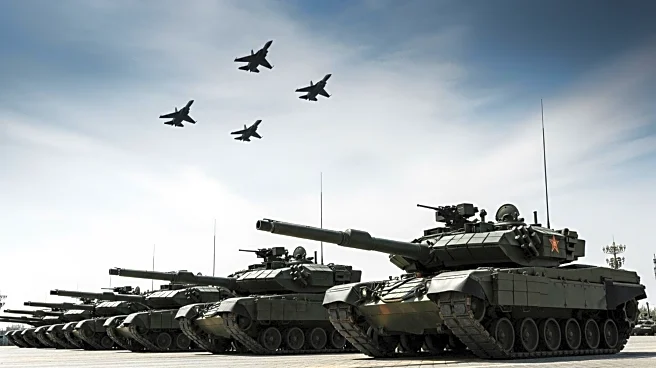What's Happening?
North Korea's leader, Kim Jong-un, has arrived in Beijing on his signature green train to attend a military parade celebrating the formal surrender of Japan in World War II. The train, described as a moving fortress, traveled at 60 kilometers per hour, taking about 20 hours to reach Beijing. This mode of transport, used by North Korean leaders for decades, offers safety and comfort for Kim's entourage. Despite Kim's ability to fly, he prefers the train for its amenities and security. Kim's visit marks his first attendance at a major multilateral event during his 14-year rule, joining 26 world leaders, including Russian President Vladimir Putin, to watch the parade.
Why It's Important?
Kim Jong-un's presence at the military parade in Beijing signifies a potential shift in North Korea's foreign relations, particularly with China. Historically, North Korea's relations with China have been strained, but Kim's attendance may indicate efforts to restore ties with its largest trading partner and aid benefactor. This event also brings together key challengers of the U.S., including Kim, Xi Jinping, and Vladimir Putin, highlighting geopolitical dynamics that could impact international relations and U.S. foreign policy. North Korea's recent focus on Russia, supplying troops and ammunition for the Ukraine conflict, underscores its strategic alliances.
What's Next?
While no private trilateral meeting between Kim, Xi, and Putin has been confirmed, their gathering at the parade could lead to discussions on strengthening alliances against U.S. influence. North Korea may seek to leverage its relationship with China for economic and military support, potentially affecting regional stability and U.S. diplomatic strategies. Observers will watch for any shifts in North Korea's foreign policy priorities and the implications for U.S. interests in the region.











